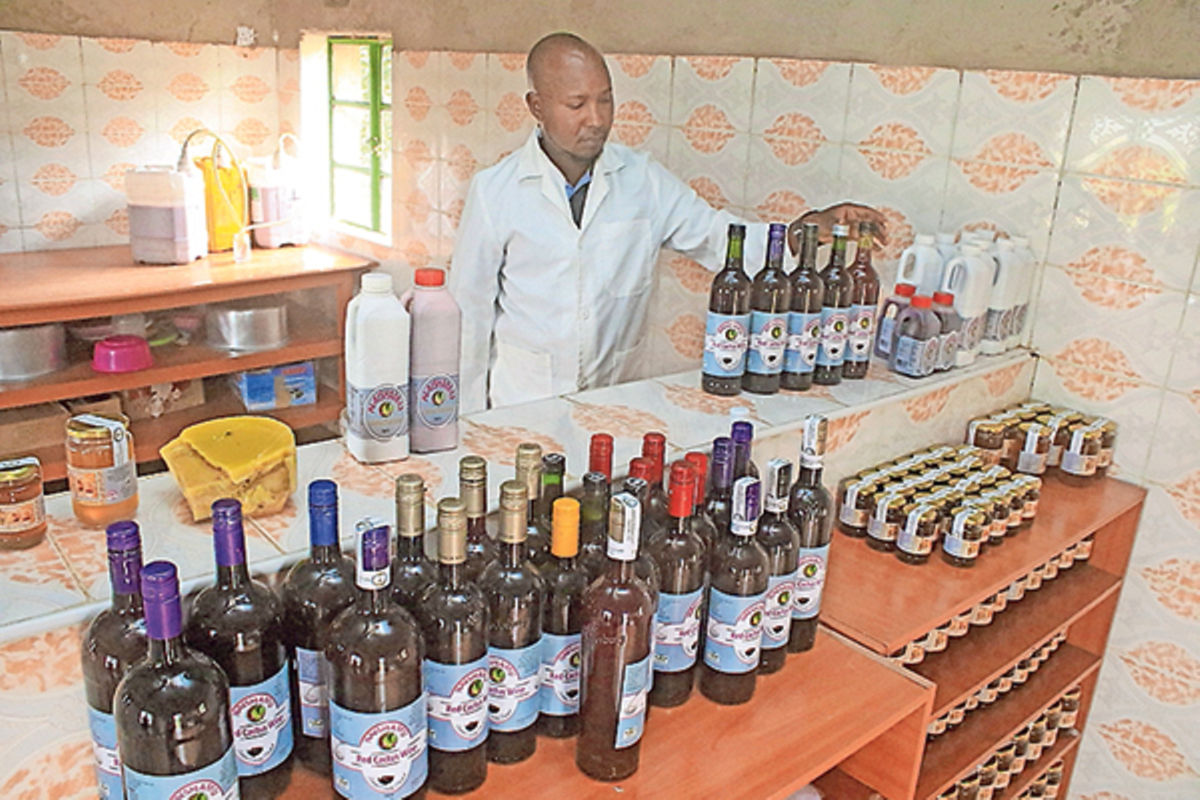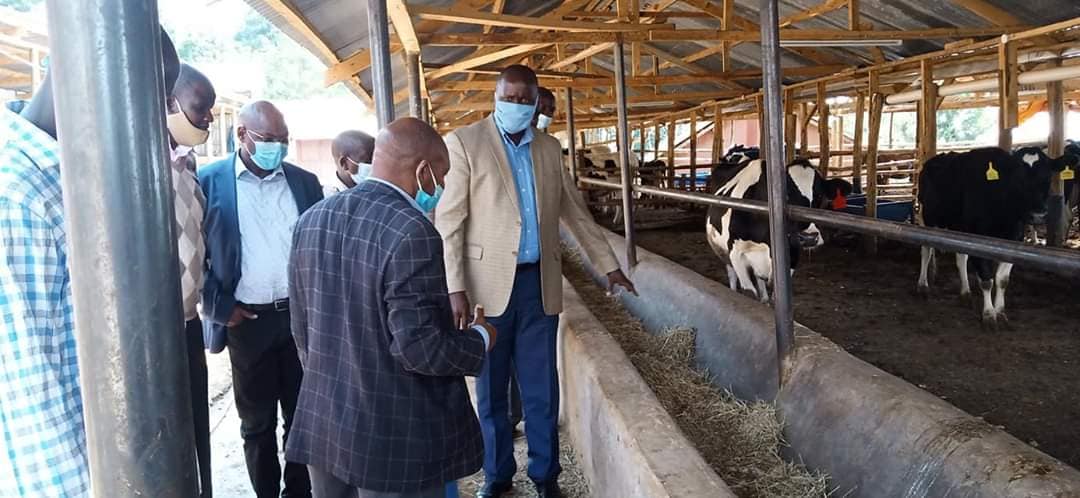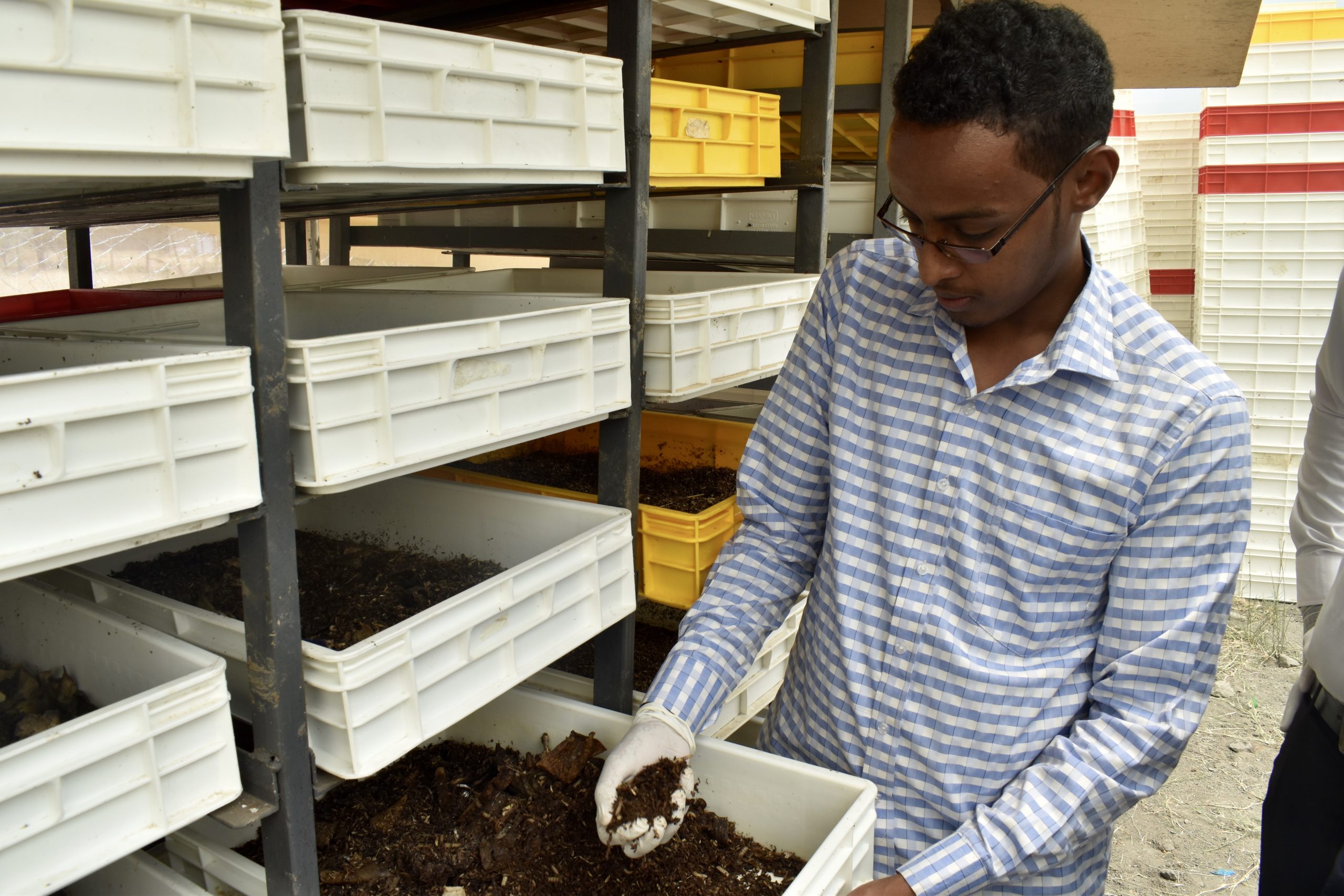
By George Munene
Laikipia Permaculture Center (LPC) a community-based Trust has created employment for over 700 women in the county of Laikipia by engaging them in value addition of cacti and aloe vera by-products.
Founded in 2014 as a partnership of four women groups from Laikipia, the center has helped women harness the economic benefits of this untapped venture through value addition and linking them to export markets.
“At its founding, the trust sought to figure out ways of easing pressure caused by overgrazing in most of the country’s arid and semi-arid regions and also give the women in the area economic independence,” explains Joseph Lentunyoi, one of the group's founders.
Related News: Kiambu solar driers give farmers Sh10k extra on crops from value addition
Related News: Vocational center training farmers on amaranth seeds value addition for more cash
LPC propagates aloe secundiflora variety seedlings, an aloe species indigenous to the region and sells them to the women at a cost of Sh80 each.
“LPC has really aimed at fully utilizing cacti and aloe plants in this region. For instance, the cacti fruit is used to make wine. Through us, the women also export fresh Aloe leaves to the United Kingdom at $10 per kilo of leaves.
Aloe value addition is done by sun-drying and grinding the leaves to make powder sold for Sh1000 per kilo, the gel inside is extracted to make aloe juice packaged in 500ml Sh400 bottles whilst the plant’s sap is also used as an ingredient in the making of cosmetic products such as soap sold locally at Sh100 per100 grams, cream and shampoos at Sh200 per 100 grams and aloe tea sold at Sh500 per 500 grams.
Aloes are protected under the Convention on International Trade in Endangered Species of wild fauna and flora; the trust has partnered with KWS to acquire permits to grow and sell seedlings as well as export aloe leaves and their byproducts.
The cactus is an invasive shrub that has been a thorn in the side of herders with their sweet spiky fruits causing the death of many of their livestock as well as reducing the quality and size of grazing land available. The women groups are however harnessing its nutritional value (low saturated fats, high vitamin A and C content, high magnesium and calcium and iron content making it an antioxidant that helps prevent cancer and other lifestyle diseases) of cacti fruits in the making of jams, juices, wine, yoghurt, honey and oils.
Related News: Government launches value addition project to market potato
Cactus fruits are plucked and their spikes scrapped off, they are stored and sold to LPC at Sh500 a crate. At an agro-processing plant at Jua Kali, Laikipia, the fruits are blended and separated from their seeds. For winemaking, one liter of cactus pulp is diluted into three liters of water and pastoralized to 75 degrees, cooled to 45 degrees before adding wine yeast and fermented for 14 days. The wine is again pastoralized to before being packaged as a final product.
With the success of Laikipia Permaculture Center. the trust aims to expand the scope of its partner to women in neighboring Isiolo and Samburu counties.
“Aside from value addition of the crops, we also get the women engaged in rearing kienyeji chicken and rabbits, bread making and in the construction of modern natural cob houses from sand, straw and clay,” adds Joseph
Laikipia Permaculture Centre: 0727 845 123/0702 095 644/0726 787 085/0736053985
Write comment (0 Comments)
















